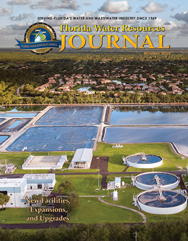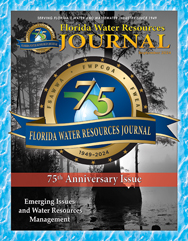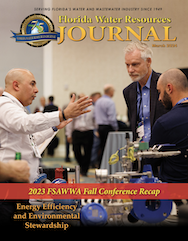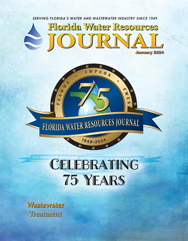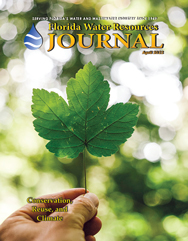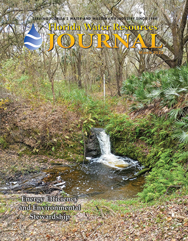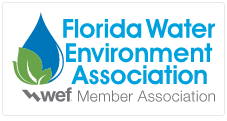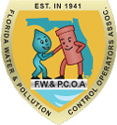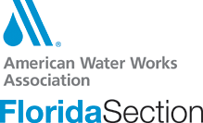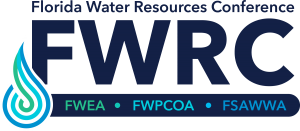EPA Won’t Limit Perchlorate in Drinking Water
The U.S. Environmental Protection Agency (EPA) has decided not to impose limits on perchlorate in drinking water, upholding a decision from the Trump administration.
Perchlorate, a chemical component found in rocket fuel and explosives such as fireworks, is considered a contaminant that has been linked to brain damage in newborns and infants. The decision could affect as many as 16 million Americans.
“While EPA is not pursuing a drinking water regulation at this time, the agency will continue to consider new information on the health effects and occurrence of perchlorate,” the EPA said in a statement.
In 2020, the Trump administration opted not to regulate perchlorate, saying that the chemical didn’t meet the criteria for regulation because it didn’t appear in drinking water “with a frequency and at levels of public health concern.” After the decision, public health experts criticized EPA and said the agency disregarded science.
After President Joe Biden took office, EPA launched a review of the previous decision and it said that it endorsed the Trump administration decision, noting that it was “supported by the best available peer-reviewed science.”
At the same time, EPA said it would provide $11.7 billion in the Bipartisan Infrastructure Law to address drinking water issues by setting up new monitoring tools and cleaning up contaminated sites. The agency also said it will create an online toolkit with technical information for drinking water systems and communities that have concerns about perchlorate contamination, which will be available sometime in 2022.
The EPA decision doesn’t affect state standards that regulate the chemical. California and Massachusetts have set limits for perchlorate in drinking water.
Perchlorate can occur naturally, particularly in arid regions, such as the southwestern United States, though high concentrations have been found in at least 26 states. High levels are often detected near military installations where the chemical has been used in rocket fuel to make propellants more reliable.
The discussion around perchlorate dates back to the early 2000s, when the Bush administration decided not to regulate the chemical in drinking water. The Obama administration reversed the decision, saying that perchlorate posed a serious health risk for millions of Americans and recommending that states create a limit of 15 micrograms per liter. The Department of Defense and military contractors, such as Lockheed Martin and Northrop Grumman, fought against the limits.
The Trump administration reversed the Obama administration’s decision and said it was “not in the public interest” to regulate the chemical. Environmental groups sued EPA over the decision, but paused the lawsuit after Biden was inaugurated in 2021.
The litigation will now resume, with the goal of compelling EPA to impose standards for perchlorate.
EPA Announces Availability of up to $1.6 Million in Environmental Justice Grants for Tribal Public Participation Project
WASHINGTON (March 21, 2022) – The U.S. Environmental Protection Agency (EPA) has announced the availability of up to $1.6 million in American Rescue Plan (ARP) funding to support Tribal government efforts to establish or modify programs on environmental justice water and air quality issues. Earlier this year, EPA announced spending plans for the $100 million in ARP funding appropriated by Congress in response to the COVID-19 pandemic and health outcome disparities, with $50 million being designated to improve ambient air quality monitoring, and $50 million designated to address disproportionate environmental or public health harms and risks in underserved communities. Congress made up to $1.6 million in ARP funding available to Tribes, recognizing the importance of supporting Tribal public engagement programs and related priorities that have been impacted by the COVID-19 pandemic. EPA anticipates awarding 16 to 20 grants nationwide in amounts of up to $100,000 per award.
“This funding opportunity will help ensure that our Tribal Nation partners and their communities are prioritized within EPA’s whole-of-government approach to address environmental challenges,” said JoAnn Chase, Director of the American Indian Environment Office. “This funding also serves as reaffirmation of EPA’s policy, and the Biden Administration’s priority, to advance and integrate environmental justice into all of our work, including our work with federally recognized Tribal governments and indigenous peoples.”
“Our partners in Tribal governments recognize that they, just like us, advance justice by starting with meaningful engagement,” said Matthew Tejada, Director of the Office of Environmental Justice. “We are excited to support their efforts to lift up the voices of the people most impacted by and vulnerable to pollution.”
EPA is committed to assisting federally recognized Tribes in building capacity to establish public participation, community involvement, education, and communication systems to engage with tribal members and others living on tribal lands, as noted in the EPA Policy on Environmental Justice for Working with Federally Recognized Tribes and Indigenous Peoples. .
Projects stemming from this Tribal grant opportunity will help achieve the goals of President Biden’s Justice40 initiative, which aims to ensure that federal agencies deliver at least 40 percent of benefits from certain investments to underserved communities.
Applicants interested in this funding opportunity must submit grant proposal packages by May 19, 2022. Applicants should plan for projects to begin on October 1, 2022. To learn more about the pre-application assistance calls and how to apply for funding, visit the Environmental Justice Small Grants Program at www.epa.gov.
It’s Coming: Water Conservation Month and Water Conservation Awards for Excellence

by Keeli Carlton
This year marks the 24-year anniversary since April was first established as Water Conservation Month in Florida. During that time, great strides have been made toward understanding the impacts of water efficiency and water conservation programs.
To recognize these efforts, the Florida Section American Water Works Association (FSAWWA) and Florida’s water management districts are once again asking local governments, water utilities, and other organizations to adopt a resolution or proclamation declaring “April as Water Conservation Month,” and then report this back to FSAWWA.
It’s important that your organization add a Water Conservation Month proclamation to the statewide list. Each year, FSAWWA works with the state governor and cabinet to proclaim “April as Water Conservation Month.” By adopting Water Conservation Month and adding your proclamation to the statewide list, you’re letting Florida’s elected officials know just how important water efficiency and water conservation practices are to local governments, water utilities, and other organizations in Florida.
The FSAWWA wants to have utilities and other groups throughout the state adopt this proclamation to get your efforts in water conservation recognized!
To add your proclamation to the statewide list of entities proclaiming Water Conservation Month this year, please email your proclamation and its adoption date to Jenny Arguello at jenny@fsawwa.org.
The due date for the proclamations is April 15, 2022.
Your continued support of water conservation and water use efficiency in Florida through participation in this 24nd annual event is appreciated!
Proclamation
(Name of county/city entity)
(Location)
WHEREAS, water is a basic and essential need of every living creature; and
WHEREAS, The State of Florida, Water Management Districts and (your name) are working together to increase awareness about the importance of water conservation; and
WHEREAS, (your city or county name) and the State of Florida have designated April, typically a dry month when water demands are most acute, Florida’s Water Conservation Month, to educate citizens about how they can help save Florida’s precious water resources; and
WHEREAS, (your name) has always encouraged and supported water conservation, through various educational programs and special events; and
WHEREAS, every business, industry, school, and citizen can make a difference when it comes to conserving water; and
WHEREAS, every business, industry, school, and citizen can help by saving water and thus promote a healthy economy and community; and
NOW, THEREFORE, be it resolved that by virtue of the authority vested in me as (chairman, mayor, etc.) of (your city or county name) and (commissioners or councilmembers, etc.) do hereby proclaim the month of April as
Water Conservation Month
(your city or county name), Florida is calling upon each citizen and business to help protect our precious resource by practicing water saving measures and becoming more aware of the need to save water.
Water Conservation Awards for Excellence
This annual awards program of the FSAWWA Water Use Efficiency Division (WUED) recognizes innovative and outstanding achievements in water efficiency throughout Florida.
Entry forms will be posted at www.fsawwa.org in July 2022.
Keeli Carlton is chair of the FSAWWA Water Use Efficiency Division.






